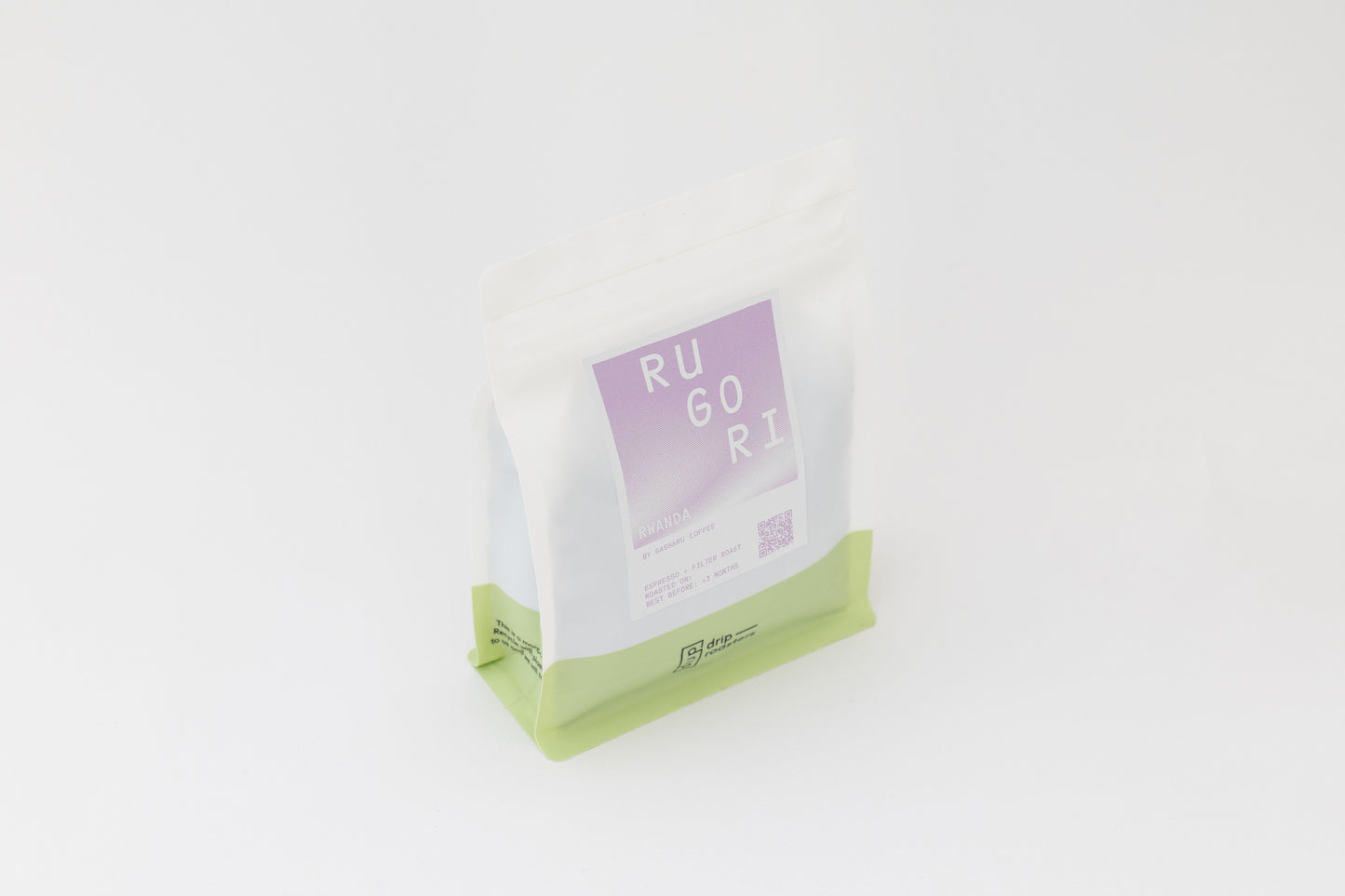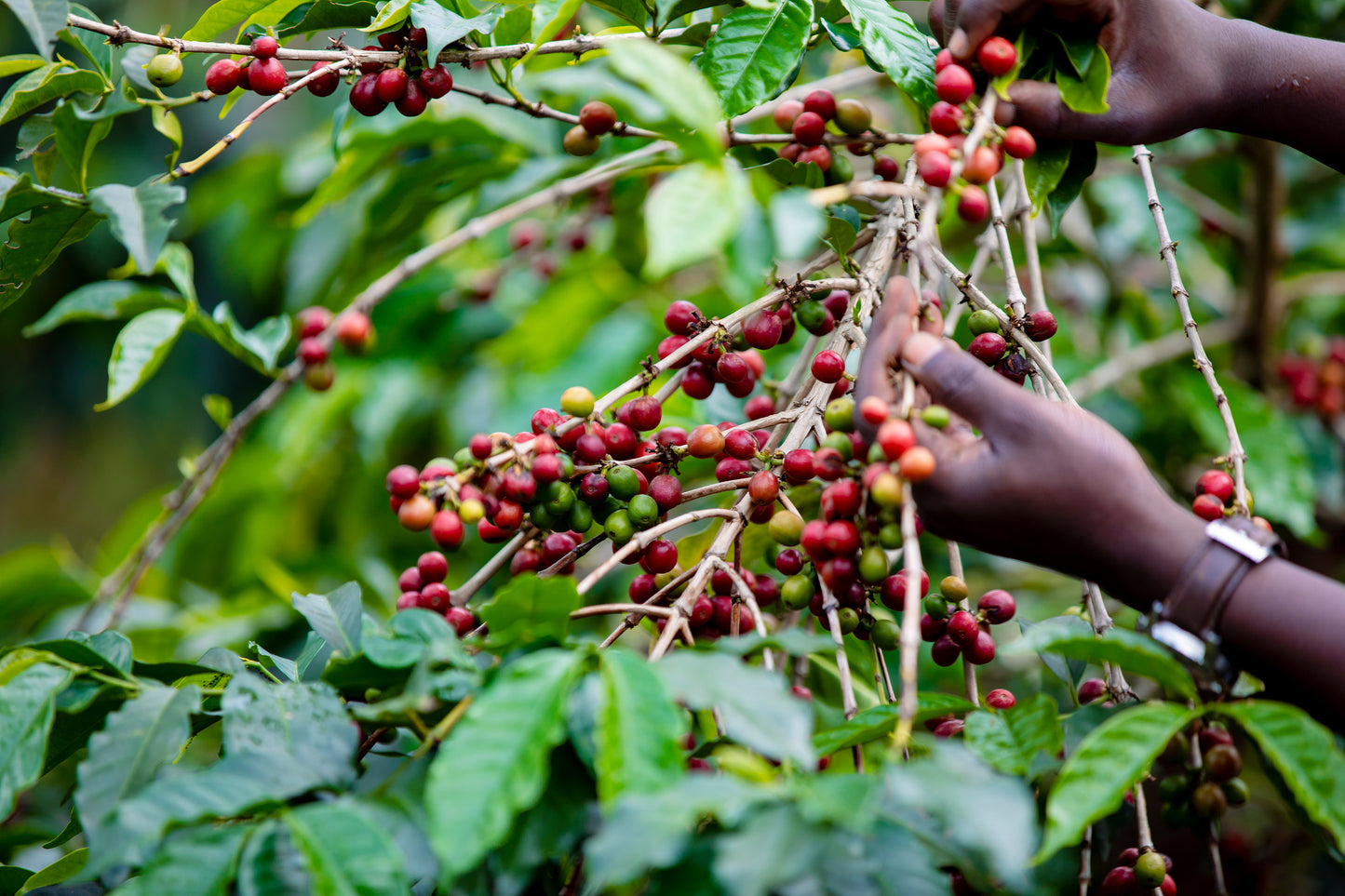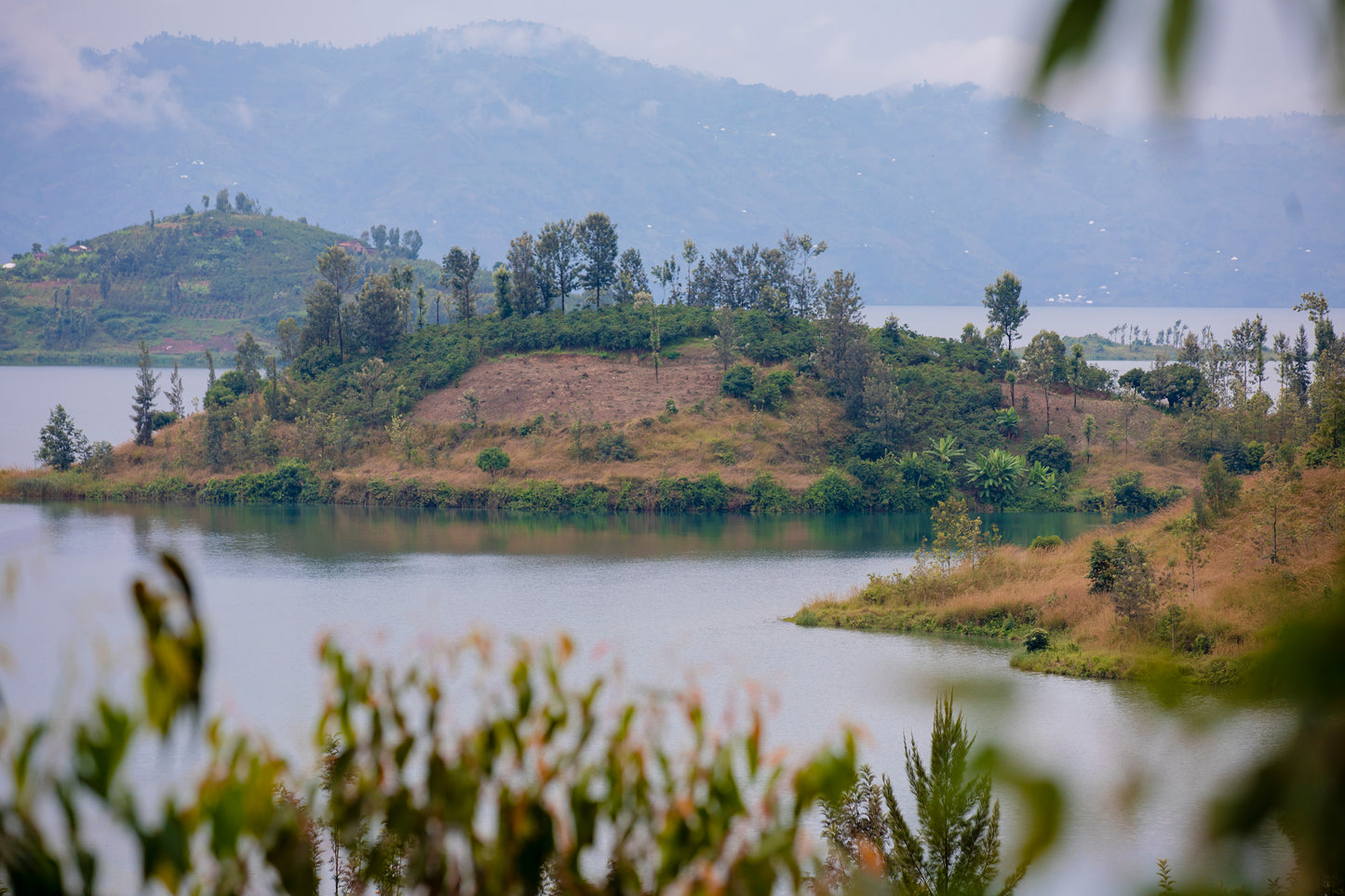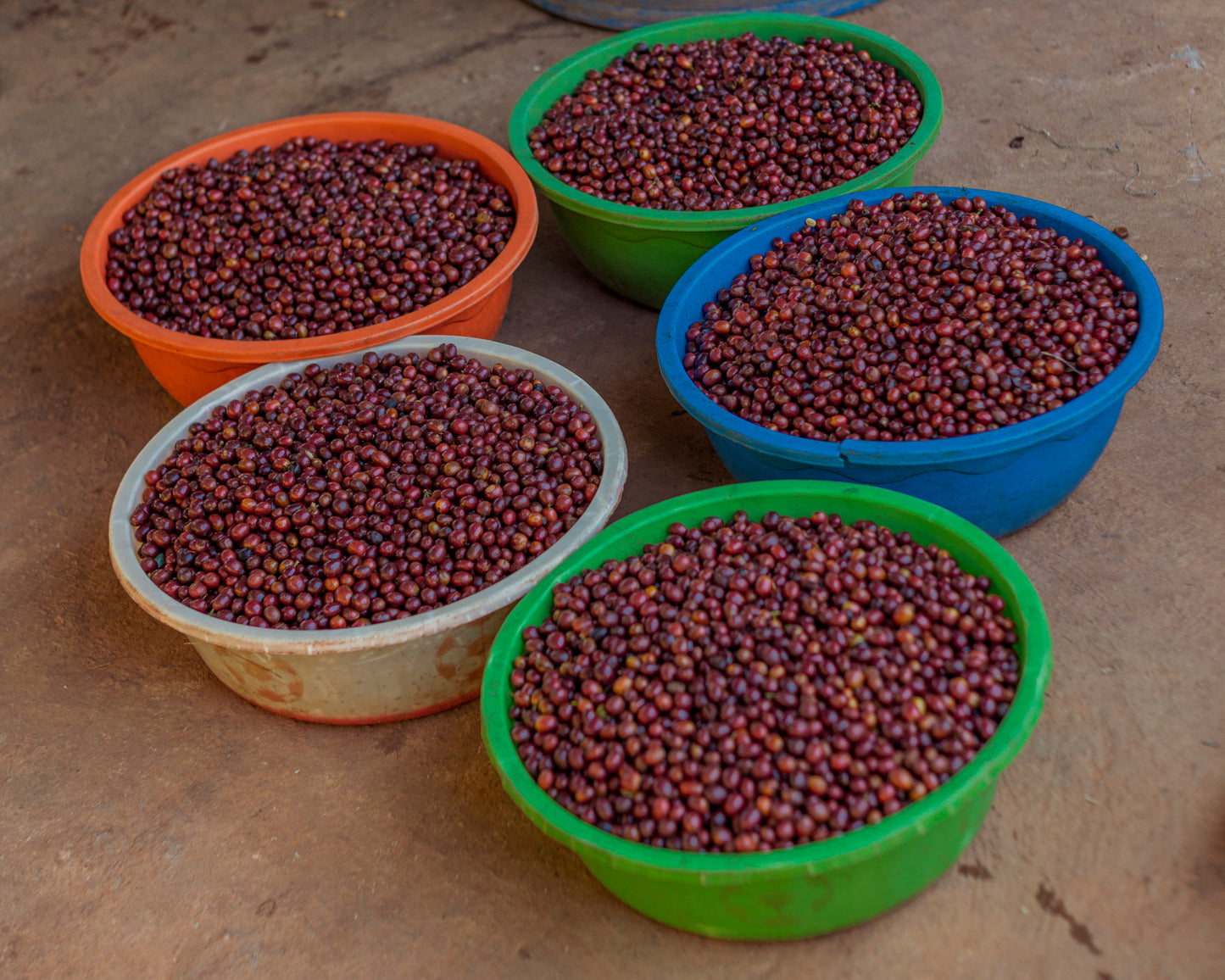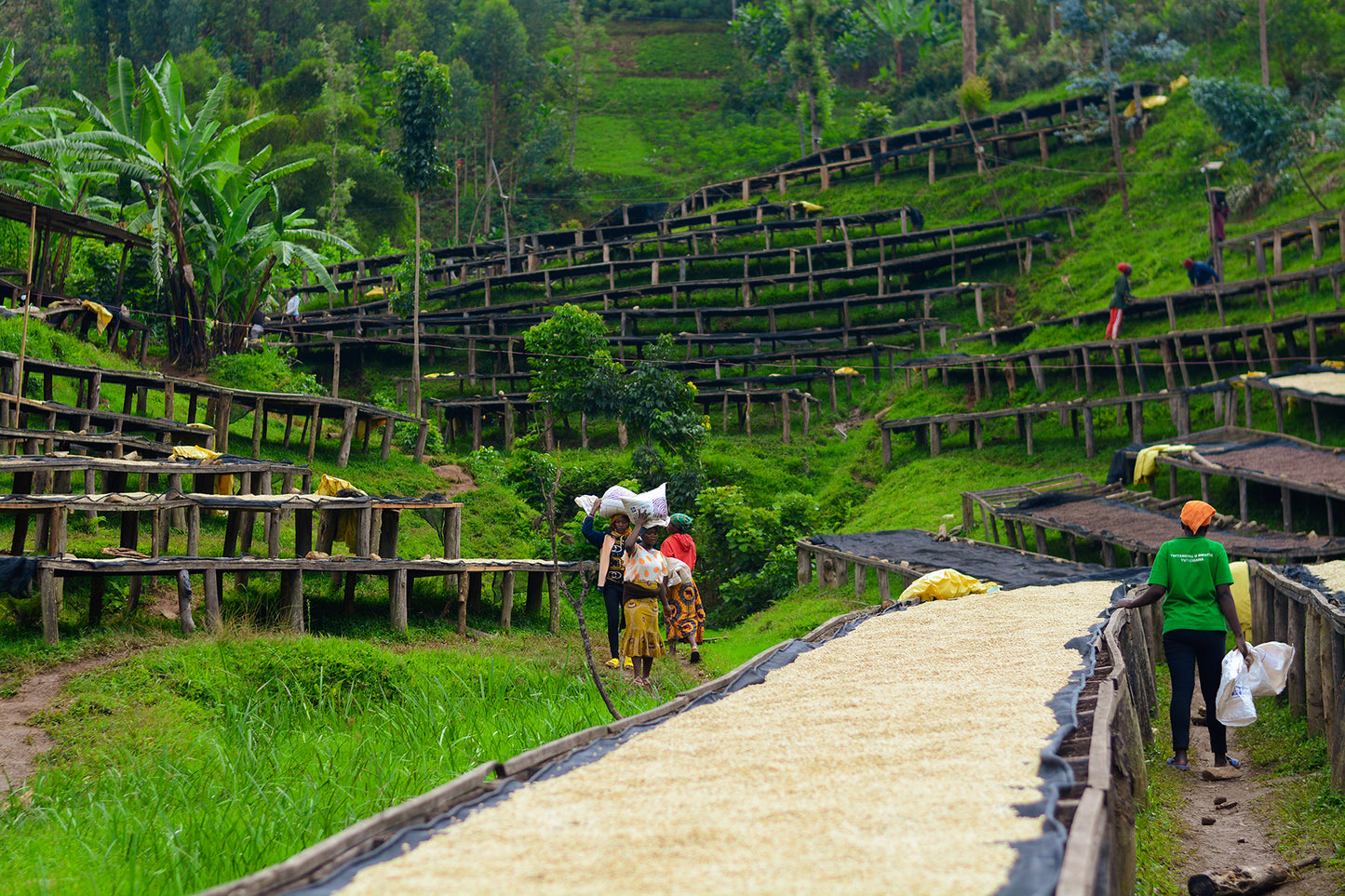Washing Station: Gasharu CWS
Producer: Gasharu Coffee
Purchasing relationship: 4
years
Region: Macuba Sector, Nyamasheke District, Western Province
Altitude: 1600-2110 masl, 2.3°S
Gasharu Coffee was created in 2014 by Valentin Kimenyi and his parents. His father Celestin had bought his first plot of land and planted 380 coffee trees at only 17 years old. He got married to Valentin's mother Marie a few years later, who also grew up in the communities the family business now operates in. Marie is a teacher and has taught many of the people in the area. Besides, she was also in charge of accounting. After having run a successful coffee business for nearly two decades, the family was forced to flee Rwanda and abandon the business because of the genocide.
They had to start from scratch when they returned four years later, yet they built their first washing station soon after and ran their new business for a couple of years. Eventually, though, the family had to sell everything and go out of business due to open loans. The failure of the project hit Celestin hard. Valentin was a young agronomy student at the time and, looking back, says: «I watched my parents count kilos of cherries all my life. In my head, money always had an association with the weight of coffee.» He had seen his parents run a business and help people with school fees and healthcare that way, which motivated him to pursue a career in agriculture and business himself. «I also didn't like to see my parents not working. They were not happy.»
Gasharu Coffee is committed to supporting the local community. As Valentin mentions, the other coffee companies in the area are not owned by people from the community. And he adds: «Coffee for us goes beyond just beans. It is a reason for people to spend time together. It allows families to go out for a meal, after they were being paid, and to buy valued dishes.» On many occasions, other companies have approached farmers who work with Gasharu – and tried to convince them to sell their coffee to them instead. But most of them have always refused even when the other companies made a good offer because there is a shared understanding that as Gasharu grows, the community grows. The family also has a small bar that serves as a sort of meeting point in the community, where people hang out, watch football and hold their family gatherings.
The family owns two washing stations, the main one being Gasharu Central Washing Station. Gasharu CWS is located on the shores of Lake Kivu and only a stone’s throw from Nyungwe Forest National Park, famous for its diverse plant and wildlife population. The region‘s climate, elevation and its soil are ideal for the production of high-quality coffee. From February to July – around the harvest season, Gasharu employs nearly 400 people, the majority of which are women. Since a large portion of the work in coffee production is carried out by women, who are often not adequately or directly compensated, Gasharu places great importance on providing women with proper jobs and fair wages. This not only helps the women themselves but also benefits society as a whole: Studies show that when women in less affluent regions have access to financial resources, malnutrition and illiteracy are significantly reduced, while girls gain access to education.






